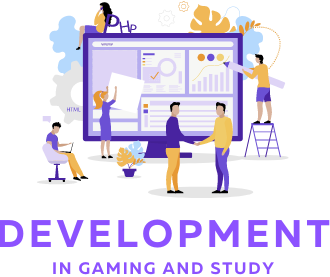In a world constantly evolving with technological advancements, games stand as a testament to humanity’s innate desire for entertainment, challenge, and social interaction. From ancient civilizations to the digital age, games have been an integral part of human culture, shaping societies and providing an avenue for creativity, competition, and camaraderie. Today, the realm of games has expanded beyond imagination, encompassing a vast array of genres, platforms, and experiences that cater to diverse audiences worldwide.
Evolution of Gaming: From Analog to Digital
The journey of games traces back to ancient civilizations where people indulged in simple yet engaging activities like board games, dice games, and sports. These early forms of games served as both entertainment and tools for social bonding and skill development.
The 20th century witnessed a revolution spaceman demo with the advent of electronic games, beginning with the iconic Pong in the 1970s, which laid the foundation for the video game industry. As technology progressed, arcade cabinets, home consoles, and personal computers became the battlegrounds for digital adventures, captivating players with immersive narratives, strategic gameplay, and stunning visuals.
The 21st century brought forth a new era of gaming with the rise of mobile devices, online platforms, and virtual reality. Mobile games introduced gaming to a broader audience, blurring the lines between casual and hardcore gaming experiences. Online multiplayer games fostered a sense of community and competition on a global scale, while virtual reality pushed the boundaries of immersion, transporting players to fantastical realms and alternate realities.
Diversity in Gaming: A Multifaceted Landscape
The modern gaming industry boasts a rich tapestry of genres, catering to players of all ages, interests, and skill levels. From action-packed shooters and adrenaline-fueled racing games to thought-provoking puzzles and narrative-driven adventures, there’s a game for everyone.
Indie developers have risen to prominence, bringing fresh perspectives and innovative gameplay mechanics to the forefront. These smaller studios have proven that creativity knows no bounds, delivering memorable experiences that resonate with players on a personal level.
Furthermore, the concept of “serious games” has gained traction, utilizing gaming mechanics for educational, therapeutic, and societal purposes. Whether it’s simulating real-world scenarios for training purposes or promoting mental health awareness through interactive experiences, games have demonstrated their potential as powerful tools for positive change.
The Social Aspect: Building Communities and Connections
Gaming has transcended its solitary roots to become a social phenomenon, fostering friendships, rivalries, and collaborations across the globe. Online multiplayer games serve as virtual meeting grounds where players unite to conquer challenges, strategize together, or simply unwind after a long day.
Streaming platforms like Twitch and YouTube Gaming have transformed gaming into a spectator sport, with millions tuning in to watch their favorite players compete or embark on epic adventures. This emergence of esports has propelled gaming into the mainstream, turning professional players into celebrities and filling stadiums with passionate fans.
Moreover, gaming communities have become inclusive spaces where individuals from diverse backgrounds come together to share their love for games. Whether it’s through forums, social media groups, or gaming conventions, enthusiasts bond over their shared experiences, fueling a sense of belonging and camaraderie.
The Future of Gaming: Innovation and Beyond
As technology continues to evolve, the future of gaming holds endless possibilities. Advancements in artificial intelligence, augmented reality, and cloud gaming promise to revolutionize the way we play, blurring the lines between the virtual and the real.
Artificial intelligence-driven NPCs will offer more immersive and dynamic gameplay experiences, adapting to players’ actions and evolving alongside them. Augmented reality will enable gamers to interact with their environments in unprecedented ways, seamlessly blending the virtual with the physical world.
Furthermore, the advent of cloud gaming services will democratize access to high-quality gaming experiences, allowing players to enjoy console-quality games on any device with an internet connection. This shift towards a platform-agnostic future will break down barriers and bring gaming to new audiences around the world.
In conclusion, games continue to captivate and inspire us, serving as portals to worlds of imagination and adventure. Whether we play for fun, competition, or self-expression, games have the power to entertain, educate, and connect us in ways that transcend language and cultural barriers. As we embark on this thrilling journey through the dynamic world of games, one thing remains clear: the power of play knows no bounds.
